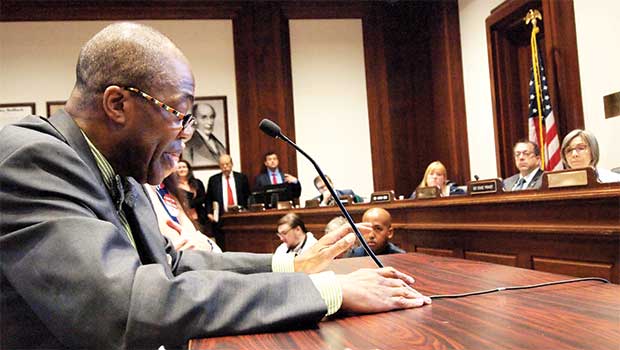
The majority of students attending public higher education institutions to prepare for their careers are likely being taught by those whose own teaching careers challenge them to make ends meet. So said advocates who turned out to the State House last week to champion legislation that would ensure that when adjunct professors teach a course, their pay resembles what a tenured professor would be paid for that same course.
The plight of adjuncts is widespread: About 70 percent of classes at the state’s community colleges are taught by such part-time, freelance instructors, according to Barbara Madeloni, president of the Massachusetts Teachers Association.
Adjuncts say they come highly qualified, with master’s and doctoral degrees, and are asked to perform to the same teaching standards as tenured peers. But they receive vastly less pay, no benefits and no guarantee that a class they signed on to teach actually will be held — and thus no guarantee that they will be paid, despite having completed all the curricular planning.
“We teach in the same classrooms, we meet the same educational standards, the students get the same credits, they read the same textbooks and they pay the same tuition and fees [as they would with a tenured professor],” Jeff Seideman, vice president of Massachusetts Community College Council, said. “[Yet] when you combine the value of benefits and salaries that full-timers receive for doing the identical teaching work, we’re paid less than half of what they get.”
An “unlivable” career
For many, adjunct work is their full-time occupation. Adjuncts earn about $2,900 to about $5,000 per class, depending on the institution, they said. John Donovan said by cobbling together six to seven courses a year at three different institutions, he manages to earn about $25,000 annually, with no health care, retirement prospects or other benefits.
“It’s an unlivable environment,” Donovan said. “I’m lucky — I married a lawyer. That’s how I pay my bills.”
Rep. Thomas Stanley said he knows of adjuncts who rely on food stamps and Medicaid to support their families. Stanley is the sponsor of a bill, H2236, that would recalculate per-course pay for adjuncts using a formula that takes into account full-time instructors’ salaries. The bill also stipulates that before colleges and university administrators can hire a new faculty member to teach a course, they first offer it to any adjunct they have who has previously taught that course or a similar one. Another provision requires adjuncts be given more advance notice of teaching assignments or cancellations, and be provided with an alternate course assignment or established percentage — also known as a “kill fee” — should their classes be cancelled near to the intended start date.
A separate bill, “An Act Investing in Public Higher Education,” would create a state public higher education fund targeted at providing comparable pay and benefits to part-time and non-tenure-track faculty, increasing the number of undergraduate courses taught by tenure and tenure-track faculty and providing adequate support staff. The bill also requires public institutions to give first notice of tenure-track job openings to their non-tenure-track faculty and a establishes new scholarship grant for students.
In some ways, the struggle of adjuncts belies the promise of higher education, some said.
“We shouldn’t ever have to have a person with a Ph.D. going to the department of transitional assistance asking for welfare benefits,” said Peter MacKinnon, president of SEIU local 509.
Student experience
The constraints of adjunct teaching — including lack of office space and the need to travel between institutions to create a sufficient course load — can impede their ability to fully serve students, adjuncts and students said.
Walter Harper, an adjunct at Bridgewater State University, said he often is relegated to giving office hours in hallways or snatching the occasional empty classroom. Michele Nash, adjunct biology professor at Springfield Technical Community college, said that any out-of-classroom work performed by an adjunct is not factored into their compensation.
“We volunteer time,” Nash said. “All work outside of the classroom is unpaid — returning emails, advising, listening to them after they’ve lost someone to a gunshot in Springfield.”
Doctoral student Kenneth Farineny said students feel the effect in the level of time faculty is able to allocate to them — something depleted when instructors need to leave after class to travel to another teaching engagement. Full-time positions facilitate relationship-building with faculty and let instructors better focus on students by eliminating distractors such as worries about making rent, students said.
Money crunch
Many advocates said they believe colleges and universities increasingly lean on and deliberately exploit adjuncts as a cost-saving measure. Zac Bears, executive director of Public Higher Education Network of Massachusetts (PHENOM), said the current state stems from chronic state underfunding of public higher education since 2001.
“Costs have shifted to students and families while our campuses have been forced to increase their reliance on adjunct faculty who are exploited through low pay and no access to healthcare or retirement,” Bears said.






